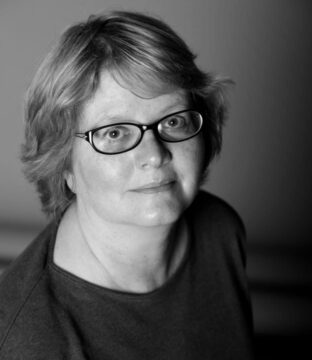A good personal budget is a foundation for achieving financial stability. Learning how to budget is essential if you want to get out of debt and avoid overspending. It’s also the best way to save money over time, so you can achieve your financial goals.
Budgeting basics
Building an effective budget isn’t complicated and helps keep you on track. Understanding the basic components of a budget is good but knowing why you should keep one is essential.
What is a budget?
Simply put, a budget is a plan for your money. At the very least, what you spend and what you earn should be equal. With a budget, you can plan where the money goes, basic needs, fun wants, or future goals.
What’s the purpose of a budget?
The goal of a budget is to avoid spending more than you have. Hopefully, you minimize the shock when something new comes up because you have already planned for it “just in case.” Just because you live on a budget doesn’t mean have to be too strict with spending. You can, and should, have rewarding goals. What’s the point of working so hard if you can’t enjoy it? Budget for emergency expenses. But also leave room for vacations and hobbies.
Once you’ve laid the groundwork for your budget, you need to make sure you can maintain it long-term. There are some common pitfalls that often lead people to stop budgeting, which leads to overspending and debt. But there are some easy steps you can take to stay on top of your budgeting.
Get 20 tips for maintaining a budget long-term »
Why is budgeting important?
There are four reasons why you should keep a budget:
- Basic understanding of how you deal with money. Tracking your spending will help you make adjustments in your life. If you are spending more than you make, there is a very big problem.
- Goals! It’s important to have financial goals, and you won’t be able to reach them without a plan. Retirement may be a long way off but an emergency may happen tomorrow.
- Lowering your stress level. Having a plan to manage financial decisions will help keep you on track. Knowing you’re prepared for the unexpected can feel like a breath of fresh air.
- Get out of debt and stay out. If you are drowning in debt, having a budget will keep your spending under control. With some practice, it becomes second nature.
How to create a budget and stick to it »
Defining the elements of a budget
A budget contains the following:
- Standard or basic income: Everything you have coming in on a regular schedule. That includes things like wages, alimony or child support, VA or other benefits, and court settlement payouts.
- Disposable income: Income after taxes available to invest, save, or spend.
- Discretionary income: Disposable income minus all necessary payments.
- Financial windfall: Money that is not guaranteed might be considered a financial windfall. A work bonus, lottery winnings, an inheritance, or investment return are considered unexpected financial gains.
- Fixed expenses: Needs that have a set cost and stay the same from month-to-month, such as rent, insurance, and loans.
- Flexible expenses: Purchases that don’t have a set monthly cost such as utilities or food.
- Discretionary expenses: Wants like vacations or entertainment.
Knowing these categories will help you to prioritize and plan effectively. You can also easily make cuts when you need to streamline your budget, pay off debt, or save up for something big.
How to make a cash envelope system »
Now matter what kind of debt you have, Debt.com can help you solve it.
Building a budget that fits your specific needs and goals
Every financial situation is unique. The budget you need right out of college should help you save for major life goals, like getting married and buying your first home. That’s vastly different from the budget you need as you head into retirement and face the challenges of a reduced fixed income.
With that in mind, Debt.com offers a series of budgeting guides designed for specific life stages.
Making an effective family budget
Did you know raising one child to the age of 18 costs more than a quarter of a million dollars? Kids are expensive, so you need a budget that takes all of their needs and wants into account, while also allowing you to save for their future. We explain how to create a family budget that everyone can get on board with.
Build a family budget that works »
Budgeting for couples
Managing your money is challenging enough when you’re single, but it’s doubly hard when you add another person into the mix. You need a budget that blends your finances and your financial goals effectively. Learn how to build a budget together that helps you transition from two financial strategies to one that meets both partners’ needs.
Make a budget that meets both your needs »
Budgeting for women
Women have some unique concerns when it comes to managing money. Women make less, but often have more expenses to cover. This budgeting guide helps women make a budget that works for achieving their goals and avoiding overspending. Whether you’re single, a single mom, a stay-at-home mom, or the primary breadwinner in your household, we have some financial advice you can use.
Set up a practical spending plan »
Budgeting for seniors
As you transition from your career into retirement, you’re going to encounter some unique financial concerns. This guide explains how to make the right adjustments to live on a limited fixed income and how you can avoid debt and save effectively during your retirement to avoid financial hardship.
Budget for your golden years »
Budgeting to get out of debt
As the debt piles up becoming debt free may seem impossible. No matter what time of debt you have or the circumstances you acquired it, this guide will help you battle your debt woes.
Finding the best way to get out of debt »
Budgeting to stay out of debt
Stop the merry-go-round! Once you have dug your way out of debt stay out. Beyond keeping to a budget there are some pitfalls you should avoid.
Budgeting for specific events
A basic household budget will keep you on track with your daily spending. But there are certain events that can throw even the most well-laid budget off. Whether it’s holiday overspending or a turn in the economy, a little foresight and planning can go a long way in helping you maintain financial stability.
Making a holiday budget
The holidays are the most expensive time of year for most households. The average family shells out over $1,000 to make the season merry and bright. It’s no wonder that so many people start the New Year with a holiday debt hangover. But this guide can help you build a holiday budget, so you can avoid added credit card debt this year.
Avoid holiday debt with the right spending plan »
Vacation budgeting
Studies show that roughly 90% of Americans take on credit card debt when they take a vacation. This guide helps you learn how to vacation on a budget so you can avoid bringing debt home as a souvenir. Learn smart ways to plan your trip and make reservations so you can stay on budget and avoid increasing your credit card balances.
Set a practical budget for the next vacation »
Build a budget to survive the next recession
An economic downturn can do major damage to your finances, especially if you lose your job during a period of high unemployment. But if you start planning and saving now, you can minimize the risk of financial hardship during a recession. Learn how to recession-proof your finances today so you can weather the next financial storm.
Learn how to make your finances recession-proof »
Planning for funeral costs
Funeral costs can lead to significant financial challenges for surviving family members. The average funeral costs $9,000 and that total can be even higher, depending on where you live. This guide helps you understand the costs that you can face and how to plan effectively for the future to minimize the burden on your loved ones.
Preparing for funeral costs to prevent debt »
What is the best budgeting software?
Finding the best budgeting tool really depends on you! Budgeting is pretty notorious for being a hassle. People who start a budget say it can be difficult to keep up. So, you need to find a budgeting tool that makes it as easy and hassle-free as possible. That varies based on who you are. In fact, a Debt.com’s annual budgeting survey shows nearly half (49%) of people still opt for pen and paper budgeting and 32% use spreadsheets to maintain at least some of their household budget.

So, as you start to think about how to make a budget, consider these options:
- Budget spreadsheets, that you either make or get through companies like Tiller
- Desktop budgeting software, such as Quicken
- Budget apps, like Mint and You Need a Budget (YNAB)
Debt.com compares three top budgeting apps
| Feature | Tiller | You Need a Budget (YNAB) | Mint |
|---|---|---|---|
| Type of budgeting tool | Budget spreadsheet | Budget app | Budget app |
| Cost | $59 / year ($4.92 / month) | $84 / year ($6.99 / month) | Free |
| Free trial? | 30 days | 2 months | n/a |
| Syncing | Banks, credit cards | Banks, credit cards | Banks, credit cards, investment accounts |
| Auto-categorization | Yes | Yes | Yes |
| Security | 256-bit AES encryption | 128-bit AES encryption | 256-bit AES encryption |
| Alerts | Daily email update | Smartphone notifications | Smartphone notifications and email |
If you prefer paper and pencil budgeting…
No matter how technologically savvy you are, sometimes it just feels better to budget the old-fashioned way. If you prefer this method but you’re not sure where to start, there are plenty of print-out templates that make it really simple.
Top Budgeting Questions
According to Debt.com’s 2023 budgeting survey, only about 1 in 5 people are keen on going digital when it comes to budgeting. But with features like account synchronization and automatic expense categorization, there’s good reason to upgrade your budgeting strategy to move it into the modern age.
Learn more about how budget apps make it easier »
If you’re looking for a budgeting or money management tool, you may have run across the acronym PFM. It stands for Personal Financial Management. It refers to any tool that allows you to manage multiple financial accounts on a single platform. The tool syncs with your bank accounts, retirement accounts, credit cards and other bills to give you one simplified view of your financial life.
Get a full explanation of PFM tools to decide if you need one »
This debate used to be limited to conversations about cash versus credit, but these days those aren’t your only payment options. We go through all of the payment types available today to tell you which ones are good for budgeting and which are bad. Things like ACH and mobile wallets may be convenient, but they also lead to overspending.
Find the best payment options for your budget »







